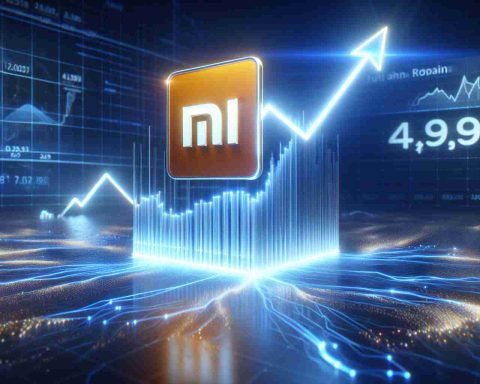- Blockchain-Based Artificial Intelligence (bbAI) is revolutionizing the banking sector by combining blockchain’s security with AI’s analytical capabilities.
- bbAI enhances security through blockchain’s immutable ledger, reducing fraud risks and enabling proactive threat detection.
- AI-driven automation in bbAI can lower operational costs by handling tasks like customer service and loan processing without human intervention.
- Personalized banking services are possible with bbAI, as AI analyzes data in real-time to tailor financial products to individual customer needs.
- bbAI is expected to bring innovative advancements, making financial services more efficient, secure, and customer-centric.
In a groundbreaking development, the banking sector is set to undergo a complete transformation with the introduction of Blockchain-Based Artificial Intelligence (bbAI). This innovative technology merges the decentralized nature of blockchain with the analytical prowess of artificial intelligence, promising a secure, efficient, and transparent banking ecosystem.
Redefining Security and Efficiency
One of the most compelling advantages of bbAI is its ability to enhance security. By utilizing blockchain’s immutable ledger, bbAI ensures that transactions are secure and verifiable, significantly reducing the risk of fraud. Moreover, AI algorithms can analyze patterns and predict potential security threats, allowing institutions to proactively safeguard customer data.
Automation and Cost Reduction
Another significant impact of bbAI is the potential for cost reduction. AI can automate routine banking tasks, such as customer service inquiries, loan processing, and compliance checks. This automation reduces the need for human intervention, enabling banks to cut operational costs and reallocating resources to more strategic initiatives.
Data-Driven Personalization
With the integration of bbAI, the banking industry can also offer more personalized services to customers. AI can analyze vast amounts of data in real-time, tailoring financial products and services to match individual customer needs and preferences. This personalized approach enhances customer satisfaction and loyalty.
As bbAI continues to evolve, it is expected to unlock unprecedented opportunities within the banking sector, paving the way for a future where financial services are smarter, faster, and more secure than ever before. Keep an eye on this cutting-edge technology as it redefines the landscape of finance.
Revolutionizing Finance: How Blockchain-Based AI is Changing Banking Forever
How does Blockchain-Based AI improve security in the banking sector?
Blockchain-Based AI, or bbAI, elevates security in banking by leveraging blockchain’s decentralized and immutable ledger. This means every transaction is securely recorded, making them tamper-proof and verifiable. The combination of blockchain technology with AI algorithms allows banks to analyze data patterns and forecast potential security threats, enhancing proactive measures against fraud and unauthorized transactions.
What are the economic impacts of bbAI on banking operations?
The introduction of bbAI stands to revolutionize banking operations by significantly reducing costs. By automating routine tasks like customer inquiries, compliance checks, and loan processing, bbAI minimizes the necessity for extensive human resources. This can lead to more strategic resource allocation and potentially lower banking fees for customers due to reduced operational overhead.
How does bbAI enhance customer experience in banking?
With bbAI, banks can offer hyper-personalized experiences by quickly analyzing vast datasets to understand customer behavior and preferences. This allows institutions to provide tailored financial advice, products, and services, resulting in increased customer satisfaction and loyalty. The real-time data processing capabilities of AI ensure that customers receive timely, relevant information and offerings.
Additional Insights and Trends
– Market Forecasts: The adoption of bbAI is predicted to grow significantly over the next decade as banks seek more secure and efficient solutions.
– Use Cases: Aside from traditional banking, bbAI is finding applications in areas like fraud detection, risk assessment, and personalized marketing.
– Limitations: While promising, bbAI requires substantial initial investment and can pose integration challenges with existing banking systems.
– Innovations: Continuous advancements in AI and blockchain may lead to the development of more sophisticated financial products and services.
– Sustainability: By reducing paperwork and physical branches, bbAI could contribute to a smaller carbon footprint for banks.
– Predictions: As AI learns and evolves, we expect even more seamless and intuitive financial services, adapting to both corporate and individual banking needs.
For more insights into blockchain applications and financial technologies, visit IBM or Finextra.






















